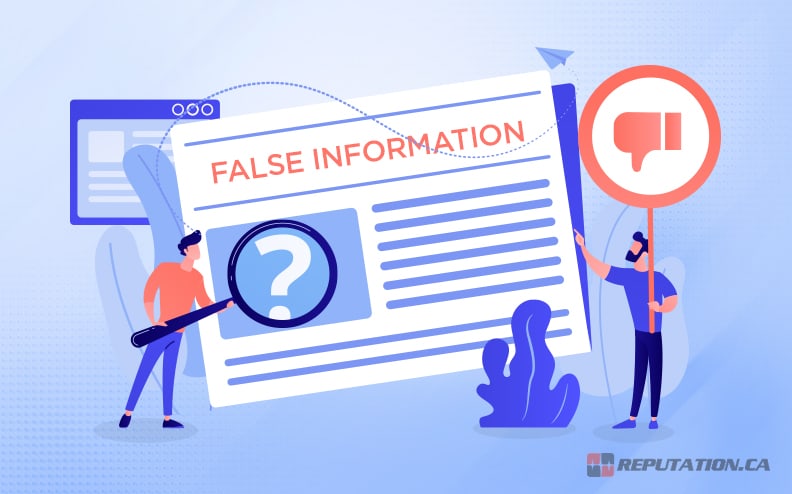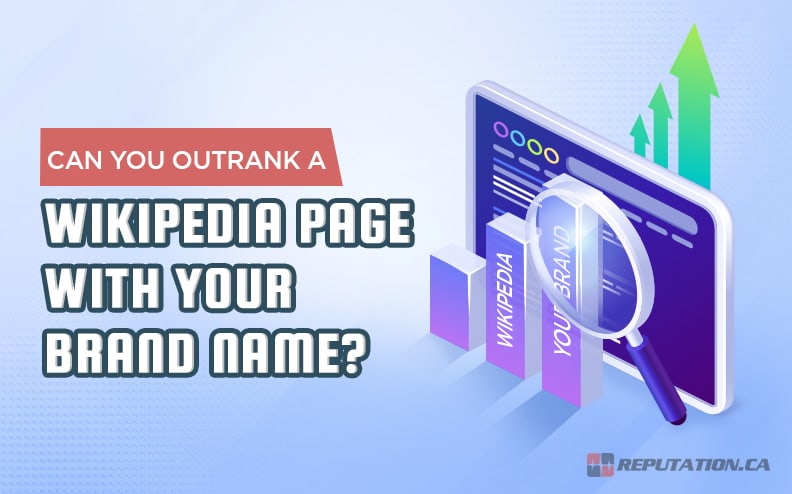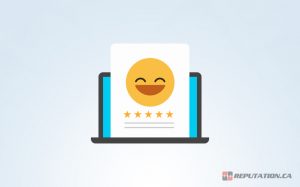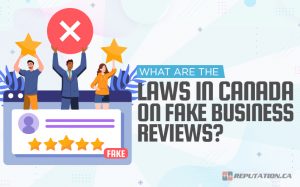While Google is the search engine of choice for modern internet users, the key lies in the results the engine produces after a search. One of the most common results for any Google search we perform is the Wikipedia website, which serves as a common first stop for those seeking information.
Wikipedia is a major source of online information and has articles on virtually every major person or event in history. Wikipedia is also extremely user-friendly and free to use, making it extremely popular with modern users. Unfortunately, Wikipedia can negatively affect the subject of an article by giving people a poor impression of the person or group detailed.
Because of Wikipedia’s popularity, it can also cause more significant information about the subject to be buried beneath the Wikipedia article link. Sometimes, even the content from the subject’s website can be buried by Wikipedia articles. Which begs the question: can Wikipedia articles be outranked in search results?
What Does Result Ranking Mean?
Search engines like Google are designed and optimized to produce results in order of relevance to the one looking them up. Search engines use specialized algorithms to compare the search parameters to results based on keywords, recent events, and other details that help the engine organize what it shows the user. This is a ranking system that search engines use to provide convenience to their users looking for specific information.

For those who favor the Google search engine, result ranking is determined by a 5-step system:
- Meaning: Google assesses the search parameters entered in the search bar and interprets the intent behind them.
- Relevance: Google assesses results related to the meaning of the search parameters and filters them based on how well they relate to that meaning.
- Quality: Google further assesses the results for expertise, authority, and reliability as a source to ensure quality results rather than idle speculation.
- Usability: Google assesses the results for compatibility with the device you are searching on and will filter based on whether there is a mobile version for phone searches.
- Context: Finally, Google assesses the results for compatibility with your location, past search history, and the settings in your Google account.
These stages help Google prioritize the results as they relate to the user and the wider world. While this system might make it seem like Google results will retain a static ranking, the results are always in flux since real-world occurrences can alter the relevance of a result. For example, if the search subject was recently featured in a new article, the results will prioritize that article to spread the information to all users.
This new information helps the news article outrank other results that might have had priority even 24 hours before the article went live. The article outranks the original information because it is more recent and provides relevant insight to more recent searches. This reliance on newer data can be utilized to outrank older content, including Wikipedia articles, yourself.
How Can Wikipedia Harm Your Reputation?
The use of Wikipedia for information gathering is a common practice used by billions of users worldwide. It might seem odd to think that Wikipedia could threaten your reputation since it serves as a research tool. While Wikipedia is meant to provide factual information about the subjects of the articles, there is a weak point on the website. The website is designed to make updating the content of the articles easy and empowers its users to adjust them.
Wikipedia is a large website that has a small team of administrators, so users are encouraged to modify articles on the website’s behalf. Even users without a Wikipedia account can edit articles and add new content to the pages.
While this was originally a useful tool for keeping Wikipedia articles up to date, it has become a double-edged sword. Users can make any edits they want to a Wikipedia article, including posting false information about your brand. While the administrators are meant to catch these harmful edits and remove them, the team is too small to effectively analyze every edited article on the website.
Wikipedia hosts 6,578,086 unique articles, and there are only 1,021 administrators to oversee the website. This means that each administrator would need to analyze over 6,000 articles a day to check every single one for false information.

This means it is possible the Wikipedia article about your brand can have false information added that harms your image in the eyes of the readers. The longer this information remains, the more damage your reputation will take and the more business your brand will lose. Because it might take time for the administrators to find the edit, you might have to take matters into your own hands to overcome the Wikipedia article.
While you are able to go back and edit the article yourself, you can also work to promote your brand and outrank the Wikipedia article in the search engines. The important question is how to go about outranking the Wikipedia article about your brand so you can protect your reputation.
How to Outrank Wikipedia Articles
Outranking Wikipedia articles might seem impossible since it is one of the most visited websites in the world. Fortunately, you can outrank virtually any result from a search engine with the proper effort and insight. Understanding the significance of keywords is key to outranking results on a search engine. These keywords fuel every online search and affect the search parameters’ meaning and relevance. Keywords can encompass a broad range of terms used in the initial search and can directly affect the results that are given priority. Usually, a brand name is the only thing typed into the search bar when someone wants information on the company. However, searching for specific information related to the brand’s services or products is also common.
For example, people researching a clothing brand might search what materials are used in the clothes. Some people prefer silk or cotton, while others are satisfied with blends, but those who invest in clothing quality will likely research this information. In situations like this, the results outlining the materials used to produce those clothes will override almost every other result.
The Wikipedia article about your brand might still rank fairly high if it contains information about the materials used in your brand’s production process. If your clothing lacks materials that appeal to certain customers, finding it out from Wikipedia might cost you some of your consumers.
You would have to overpower the keywords to counter harmful posts or Wikipedia articles that might affect your consumer base. The best way to do this is to create a blog on your brand’s website where you can post information about the products and industry yourself. These articles will allow you to explain how certain materials affect the longevity and quality of clothing and relate it to the products you offer.

Writing the article on your website is not enough to outrank the Wikipedia article, but including keywords will give it that power. By ensuring the post you make on your website has the keywords currently leading the statistics of your industry, you can place your post closer to the top.
A single article on your webpage will not be enough to turn the tide in your favor and prevent unwanted content from topping the search results. You will need to maintain a regular blog that is updated as your company advances to ensure the Wikipedia article ranks lower than your brand’s website. This continued content has a two-fold effect in keeping your webpage at the top of the search results.
The first is that using keywords helps tilt search engine optimization (SEO) in your favor. The second effect is that the new content provides new results for the search engine to identify and present to your customers. The more articles you have, the more likely they will populate more of the results page.
While populating the content of your brand’s webpage is important to outranking other results, it might still not be enough. Your customers will not always be willing to accept what you have to say about the industry and will rely on information from additional sources. Fortunately, you can also contribute to those other sources while employing the same tactic you used on your brand’s webpage.
How Guest Posting Helps
While it might seem odd, it is possible to have your input featured on another website belonging to a peer in the same industry. This is known as guest posting and is the ultimate admission of your industry knowledge by a peer or rival brand. While not every company supports guest posting, those that do will enable companies to write articles and posts hosted on the other group’s website.
Guest posting might seem like it benefits the other website rather than your own, but the effects reverberate back to you. Because you are the one writing the post, you can relate it to your brand and mention it to draw attention back to your website. This provides the benefits of outranking the results about your own website and receiving validation from the host site.

Unfortunately, guest posting is not as simple as reaching out to another website and asking to post on their domain. The host site must reach out to you and offer to host an article you write before you can post anything. While it might take some time for an offer to come through, they are well worth the wait for bolstering your reputation and outranking other search results. There is another caveat to guest posting you must consider before committing. Because the host website has its own quality standards, they retain the right to assess your writing through its editing staff.
If the host site finds your draft incompatible with their standards, they will either have their editing staff adjust it or inform you of what needs to be changed. While meeting the standards of another website might be somewhat frustrating, it remains a major honor to have them host your content. It also serves as an important boon to your own efforts to outrank other content about your brand.
Through guest posting, the search results will be padded by content hosted on other websites. Combined with your in-house efforts to modify the SEO algorithm, the Wikipedia article about your brand will likely be buried by the additional content and place focus on your domain or any content about you on the host domain.
Take Your Reputation Back!
Managing a brand’s reputation is a difficult task that requires dedication and resources to perform successfully. When outranking certain results in a search engine, reputation management requires you to dedicate resources to creating new content that will overpower existing information. Outranking Wikipedia will require a little more effort than most other websites due to the site’s popularity. Fortunately, it is possible to outrank Wikipedia’s entries about your brand if you are willing to put in the effort. That said, not every company has the time or resources necessary to commit to full-time reputation management.

We at Reputation might have the solution you need if you lack time and tools for reputation management. We offer various services designed to help improve your image and outperform content that might damage it. We offer everything from SEO optimization tactics to social media management to help protect your brand from damage. If independent reputation management is not feasible, we urge you to visit our website so we can help you take your reputation back!
Have any questions about anything we talked about today? If so, be sure to drop us a line, and we’d be happy to assist you.
See More On Wikipedia:
- Who Keeps Editing My Wikipedia Page?
- Why You Can’t Edit Your Wikipedia Page?
- Wikipedia Page Creation: Ultimate Guide to Creating Wiki Pages
- Why Your Wikipedia Page Was Deleted?
- The Ultimate Guide to Wikipedia Reputation Management and Editing
- Somebody Edited My Wikipedia Page: What Can I Do About It?












